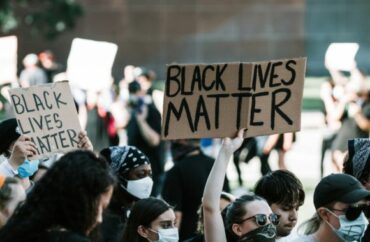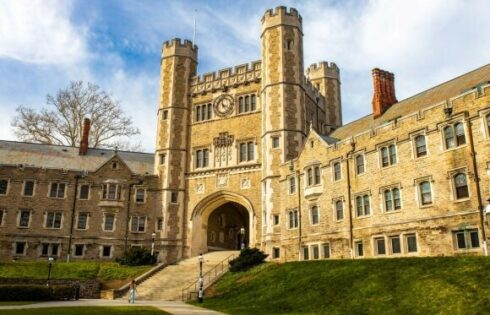
It is a ‘reasonable response’ to ‘white supremacy’s insidiousness’
Black nationalist tendencies are on the rise, due to “white supremacy,” according to a study from Rice University.
The study largely relies on data from 2012, however.
“White supremacy makes black nationalism durable and attractive; consequently, certain blacks will always endorse it,” the authors conclude in their paper, titled “Wakanda forever! Consistency in correlates of black nationalist tendencies.”
The researchers, led by Professor Tony Brown, define black nationalism as “an ideology that advocates for cultural, economic, political, and social separatism of blacks from whites and other races and/or community autonomy and self-reliance as survival tactics.”
Wakanda is the fictional country in the “Black Panther” movie, part of the Marvel superhero series. “Although the storyline is fantasy, something about the sovereign nation of Wakanda resonated with black moviegoers,” the authors wrote in their Social Science Quarterly paper, referencing the 2018 release of the film. “We think its resonance derives from the not-so-subtle connection to black nationalism.”
The Outlook on Life Surveys from 2012, produced by the University of California Irvine, asked respondents to rate their agreement to a series of questions.
Statements were: “Black people elected to office really don’t have the power to change things for Blacks in this country,” “Black people should always vote for Black candidates when they run,” (3) “Black people should shop in Black-owned stores whenever possible,” and (4) “Blacks should not have anything to do with whites if they can help it.”
“We conclude white supremacy infiltrates black life so thoroughly that even fictitious sovereign nations like Wakanda are not immune to it,” the authors wrote, based on their review of the data “Once scholars acknowledge black nationalism is a reasonable response to white supremacy’s insidiousness, then they must acknowledge certain blacks will always endorse it.”
Professor Brown is the listed contact for questions, but is on sabbatical until the fall, according to an automatic response message. Co-author Quintin Gorman, a sociology grad student, did not respond to two emailed requests in the past six weeks for comments about the use of 2012 data and other questions about the paper.
“Black nationalism now finds broader support among different segments of the Black community, though the characteristics of Black nationalists have changed over time,” a university news release states.
Rice spokesman Andrew Bell told The Fix on a phone call July 10 he would get comments from the study’s authors but has yet to provide any further information in the past three weeks. The Fix reached out several times prior via email to Bell with questions.
The authors said politicians are not likely to openly advocate for black nationalism but can do it in other ways. They “predict charismatic grassroots black leaders will soon (again) begin to openly support self-determination, community autonomy and self-reliance, and/or separatism.”
This open support will come “especially after many prominent white politicians launch vicious attacks on anti-racism, critical race theory, diversity, equity, inclusion (DEI) initiatives, and ‘wokeness.’”
The other listed authors also did not respond to a request for comment.
Proponents of black nationalism are running a political game, racial unity group says
An organization that works for racial unity disagrees with the conclusions of the study.
“I don’t believe white supremacy is a significant issue in modern American life,” Color Us United program coordinator Mike Markham told The Fix in an emailed statement. “Many political figures and media entities have found it beneficial to convince people that the concept of white supremacy is significantly more prevalent and dangerous than it actually is.”
It might be possible there is “a rise in black nationalist attitudes due to the perception of the increased relevance and potency of white supremacy,” Markham said.
“This however does not mean that white supremacy itself is any more of a threat to Black Americans than it has been at any time in recent history,” he said. “I see no evidence that this is true. But there is a new and emerging generation that is being introduced to these claims with a fervency that didn’t seem to exist just 10 or 20 years ago.”
“Truth must be emphasized over rhetoric and emotions and individuals must commit to treating each other as human beings of equal value rather than simply members of a certain group,” Markham said. When this does not happen, “much of the citizenry will remain vulnerable to manipulation along racial lines to their detriment.”
Markham says the media, ideological politicians, and “race hustlers” are responsible for rising black nationalist tendencies. “A large part of the grift is also to convince people that voting for or funding certain individuals and initiatives will fix the problems that we are told are so prevalent”, Markham told The Fix.
“BLM Inc. was also openly at odds with the nuclear family – the most powerful and beneficial institution in society – but few bothered to educate themselves in a post-George Floyd society.”
MORE: Penn offers course on ‘White Nationalism in the Age of Climate Change’
IMAGE: Aspects and Angles/Shutterstock
Like The College Fix on Facebook / Follow us on Twitter






Please join the conversation about our stories on Facebook, Twitter, Instagram, Reddit, MeWe, Rumble, Gab, Minds and Gettr.